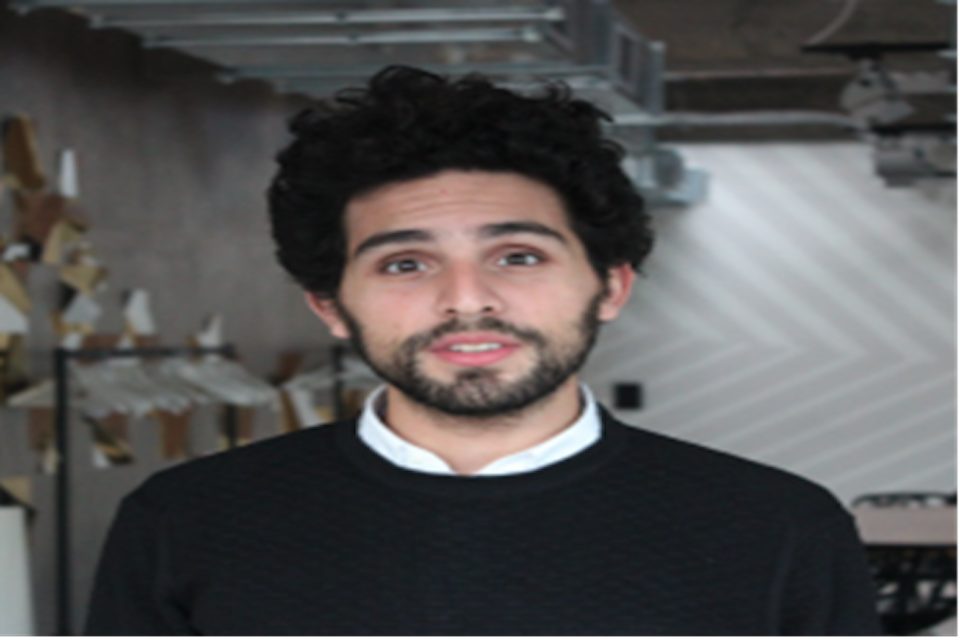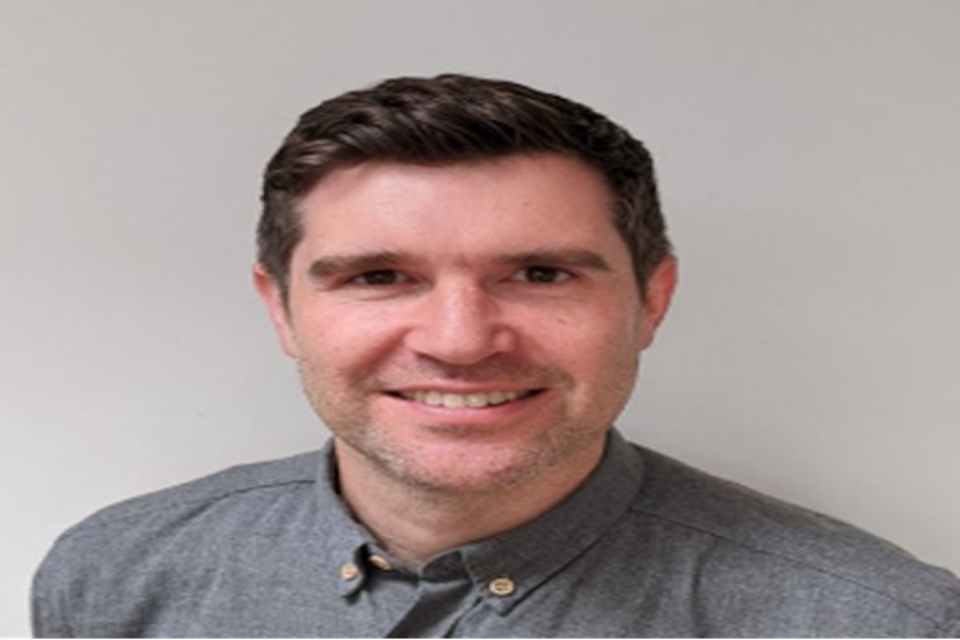The No10 Innovation Fellowship Programme
The Innovation Fellowship is 10 Downing Streets flagship initiative for bringing world class technical talent into government for high impact tours of duty.
Documents
Details
The Fellowship
The No10 Innovation Fellowship Programme is 10 Downing Streets flagship initiative for bringing world class technical talent into government for high impact tours of duty.
Our Fellows are deployed on challenging issues that are a priority to the Prime Minister. issues that we believe a Fellows who are inspirational, tenacious and have a strong interest in public service who can help solve big problems through their technical brilliance, fresh thinking and innate leadership.
Advancements in AI provide a generational opportunity to reimagine how government works, drive efficiency and generate better value for money, improve equality of access. If done well, it will enable us to generate a huge leap forward in the way we deliver services to the public.
Therefore, this year we are recruiting predominantly AI and Automation specialists. We are looking for the best technical talent in the country to join us and help drive this revolution, harnessing the power of AI to transform government and improve the lives of the people we serve.
The No.10 Innovation Fellowship is now entering its second year. Our first cohort delivered fresh insights and products that improved how government operates and will help protect and improve the lives of some of the most vulnerable people in society. You can read about their work in our Cohort One section.
This programme takes inspiration from the US Presidential Innovation Fellowship, which has also attracted high calibre and diverse talent from tech giants, start-ups, and academia, leading to new products and services.
Who are we looking for?
As well as being technical experts our Fellows are entrepreneurs in residence, natural leaders and free thinkers who proactively seek out flaws in the status quo and fix them.
There is no such thing as a typical Fellow, the strength of this programme lies in the diversity of skills, experience and background of the people we attract.
We want a richly diverse group that is united by a passion for using cutting-edge technology and to improve society.
You might be the founder of a social purpose technology company, a data-scientist with a special interest in privacy preserving machine learning, an employee of a large tech company who has delivered new product and services. The list is endless.
This year, we are particularly interested in applicants with:
- Direct experience in applying AI
- Strong digital skills which you have used to solve public problems
What can we offer?
If successful, you’ll enjoy unparalleled opportunities to deliver the type of high impact technology and data projects that are only possible in government. You’ll be put to work on a PM and Government priority where we require your unique skill set; you will have access to senior decision makers; receive mentorship and guidance from the No10 Data Science team and help tackle challenges of national importance.
You’ll have the opportunity to build a peer group of exceptionally talented Fellows and build strong links with the No.10 Data Science Team.
We’re offering each Fellow a 6-12 month secondment with a possibility of extending it; a dedicated recruitment and onboarding process; and bespoke in-programme support.
We will recruit on a rolling basis as new priority challenges emerge and we will work directly with your employer to arrange the terms of your secondment.
Fellows will work in small teams on projects that are technologically challenging, highly impactful and deliverable within a year.
The Fellows: Cohort One
With our first fellowship cohort, we embedded 7 of the nation’s top technologists and innovators into 4 government departments to work on 5 high-impact projects and foster interdepartmental modernisation.
Departments report that they have found individual fellows to be “force multipliers”, inspiring them to modernise and innovate, and enabling the sharing of lessons cross government.
We look forward to building on this success with our next Cohort, which will be more focussed on applying AI to priority issues.
Safeguarding the vulnerable: Real Time Insights to safeguard vulnerable children

Helen Balinsky - DfE
Helen Balinsky - DfE
A senior executive with over 20 years’ experience at Hewlett-Packard, seeding and leading cutting edge data science and cyber security projects.
Helen joined the fellowship to ‘Discover new opportunities, lead the way, and deliver the results that matter!’
Challenge
Having data is only part of the battle. Fully exploiting ‘big data’ is a relatively new challenge for most government departments. The reality of rich data is that it is a computationally demanding to process, ultimately slowing our ability to identify and intervene for children at risk.
Solution
Helen identified and engineered flows for a new and exciting Attendance Data Stream for DfE, which allows the efficient handling of the data and provide live policy insights.
Impact
The new solution ensures that the department is set up to use new rich data sources to safeguard vulnerable children and improve their educational outcomes. Opening up the potential to better understand daily patterns at the individual level, in real time. DfE can now deliver actionable analytics and insights, underpinning various child services, alerting corresponding authorities about critical intervention points, whilst halving processing time to provide decision makers with near live analytics. As a result of this project, the speed by which relevant authorities can access pupil safety data was improved 10x.
Community Health API: Helping to reduce the burden of mass testing

Daniel James - UKHSA
Daniel James - UKHSA
Chief Product Officer at AMPLYFI - a leading UK business intelligence start-up. Former research scientist and full stack developer at University College London.
Daniel joined the Fellowship for ‘the opportunity to work on challenges of this scale and with a direct positive impact on society is unparalleled. It’s exciting, rewarding and super fun!’
Challenge
Mass testing for Covid-19 cost £22 billion and to be effective it was reliant on active participation by the public.
Solution
To identify infectious disease earlier, the API records locally collated data on wastewater, with plans to extend into air quality, clinical tests and 111 call records.
Impact
Using a novel approach to live data ingestion, the community health API Allows infectious diseases to be identified earlier by providing an early warning system for decision makers, in a more accessible and reliable format. This can allow key decision makers to be able to anticipate the severity of an outbreak and the subsequent pressures on the NHS Services with more certainty - as a result of the population coverage of the non-invasive monitoring. Ultimately saving lives and reducing the costs associated with mass testing.
Efficiency Focus: Improving the efficiency of clinical trials

Nicole Kayode - NHSE
Nicole Kayode - NHSE
Founder and CEO of Medixus, a mobile platform connecting medics across Africa in real time, allowing them to collaborate on patient cases.
‘I’ve been amazed at the willingness, desire and readiness to move fast and innovate within NHSx – there are so many high impact projects ongoing at any given moment, and people are truly dedicated to getting the best outcomes they can.’
Challenge
Clinical research is difficult and costly, with only 7% of clinical trials in humans resulting in a viable drug
Solution
Working with Google Health, Nicole outlined a deliverable strategy to meet the vision of creating a “data enabled” solution. They also worked closely with NHS Digital on a navigation tool to access health data and improve trial efficacy. Nicole acted as a leader in removing the blockers that slow the progress of clinical trials and improve methods of cancer early detection.
Impact
This data enabled solution makes it easier, faster and more effective to conduct clinical research in the UK set out by The Future of UK Clinical Research Delivery. Making the UK a competitive country to conduct clinical trials for leading innovators.
Nationally Trusted Environment: Developing a National Trusted Research Environment

Rudy Benfredj - NHSE
Rudy Benfredj - NHSE
Co-founder and CEO of Mendelian Health, which uses its own award-winning software to identify rare diseases in electronic health records.
‘I’ve been impressed with the scale and ambition of the projects undertaken here. It can be a tricky environment to navigate at first but there is a healthy dose of contagious optimism everywhere you look.’
Challenge
Wider access to health data by world leading experts drives and accelerates the kinds of innovations in healthcare that enable new treatments and cure the diseases that impact millions of lives each year. It is not possible to do this responsibly without world leading secure data infrastructure.
Solution
To achieve this, a high-quality UK health data available for research, innovation, and care was developed, whilst maintaining the highest standards in privacy, security and public trust for our patients and the NHS.
Impact
Rudy enabled UK health and care to be harnessed and thus accelerated the UK’s world-leading medical research.
DfE DDAT Strategy: Creating a bold and ambitious DDAT strategy

Joe Blair - DfE
Joe Blair - DfE
Founding member and Director of Product at The Key, which provides online support and cloud-based products to over 50% of schools in England.
‘The Fellowship is a unique opportunity to influence how government works, but what really matters to me is having an impact on day-to-day life in schools and colleges.’
Challenge
Government’s Digital, Data and Technology (DDAT) strategy and investment lags behind basic industry standards in many places, meaning that we are constantly playing catch up as demand and expectations continue to rise, whilst investment lags.
Solution
A ‘catch up’ strategy was developed and implemented by Joe to rethink operating models and adopt new ways of working. Using a cohesive, evidence-based strategy and implementation plan.
Impact
Through an ambitious and systemic approach earlier intervention is now possible, with rapid delivery cycles - ultimately revolutionising DDAT in DfE. The strategy had overwhelming support from DfE’s Board.